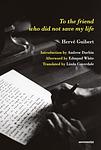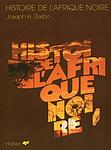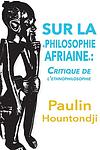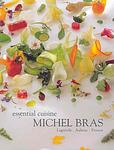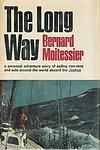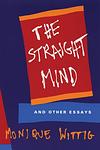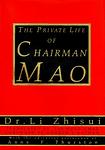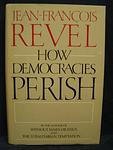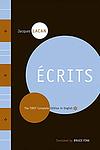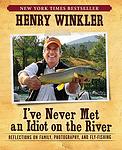The Greatest French, Chinese "Nonfiction" Books Since 1970
Click to learn how this list is calculated.
This list represents a comprehensive and trusted collection of the greatest books. Developed through a specialized algorithm, it brings together 286 'best of' book lists to form a definitive guide to the world's most acclaimed books. For those interested in how these books are chosen, additional details can be found on the rankings page.
Genres
Countries
Date Range
Reading Statistics
Click the button below to see how many of these books you've read!
Download
If you're interested in downloading this list as a CSV file for use in a spreadsheet application, you can easily do so by clicking the button below. Please note that to ensure a manageable file size and faster download, the CSV will include details for only the first 500 books.
Download-
1. Wild Swans: Three Daughters of China by Jung Chang
This book is a biographical account of three generations of women in China, spanning the years 1909 to 1991. The narrative follows the lives of the author's grandmother, a warlord's concubine; her mother, a high-ranking official in the Communist Party; and the author herself, who grew up during the Cultural Revolution before moving to the West. The book presents a vivid portrayal of the political and social changes in China during the 20th century, as seen through the eyes of these three women.
-
2. Discipline and Punish by Michel Foucault
This book delves into the historical evolution of the penal system, examining how Western societies have transitioned from a regime of violent, public physical punishment to a more subtle form of surveillance and control. It introduces the concept of the "panopticon," a metaphor for modern disciplinary societies that exercise power through observation and normalization rather than through overt physical coercion. The work explores the relationship between power, knowledge, and social control, arguing that disciplinary mechanisms are embedded in various institutions, such as schools, hospitals, and prisons, shaping individuals and maintaining order in society.
-
3. To The Friend Who Did Not Save My Life by Hervé Guibert
The book is a candid and harrowing autobiographical novel that chronicles the life of a man grappling with the devastating impact of AIDS during the early years of the epidemic. Through a blend of fact and fiction, the narrative delves into the protagonist's personal experiences with illness, the medical establishment, and the emotional complexities of friendship and mortality. As he confronts his own declining health, the protagonist reflects on the relationships with those around him, including a close friend who is also facing the disease, and the betrayal he feels when a promised miracle cure fails to materialize. The novel is a raw and poignant exploration of the human condition in the face of an unforgiving illness.
-
4. L'étrange Destin De Wangrin by Amadou Hampâté Bâ
"L'étrange Destin De Wangrin" by "Amadou Hampâté Bâ" is a captivating narrative that delves into the life of Wangrin, a complex and enigmatic figure in West African society. Through a series of interconnected stories, the book explores Wangrin's rise from a humble clerk to a powerful and influential figure, as well as his eventual downfall. Set against the backdrop of colonialism and cultural clashes, the novel offers a thought-provoking exploration of identity, power dynamics, and the consequences of one's choices.
-
5. Histoire De L'afrique Noire by Joseph Ki-Zerbo
"Histoire De L'afrique Noire" is a comprehensive exploration of the history of Black Africa, written by Joseph Ki-Zerbo. The book delves into the origins of African civilizations, the impact of colonization, and the struggle for independence. Ki-Zerbo analyzes various aspects of African history, including political, economic, and social developments, highlighting the contributions of African leaders and the challenges faced by the continent. This informative and engaging work provides a valuable resource for anyone seeking a deeper understanding of the rich and complex history of Black Africa.
-
6. Sur La Philosophie Africaine by Paulin Hountondji
"Sur La Philosophie Africaine" is a thought-provoking exploration of African philosophy by Paulin Hountondji. The book challenges the prevailing notion that African thought is inherently inferior to Western philosophy, advocating for a reevaluation of African intellectual traditions. Hountondji critically examines the impact of colonialism on African philosophy and argues for the development of a truly African philosophical framework that embraces cultural diversity and challenges Eurocentric biases. Through his insightful analysis, Hountondji highlights the richness and complexity of African thought, making a compelling case for its recognition and inclusion in the global philosophical discourse.
-
7. Memoirs by Raymond Aron
The book in question is an intellectual autobiography by a prominent French philosopher and sociologist, chronicling his life from his early years through the tumultuous events of the 20th century. It delves into his experiences during World War II, his observations on the Cold War, and his relationships with other notable intellectuals of his time. The author reflects on his philosophical and political evolution, offering insights into his analytical approach to history, politics, and society. His memoirs serve as a window into the mind of a thinker deeply engaged with the ideological and historical challenges of his era, providing a personal perspective on the broader intellectual currents that shaped the modern world.
-
8. Distinction by Pierre Bourdieu
"Distinction" is a sociological analysis that explores the ways in which the tastes and preferences of individuals are related to their social positions and the structures of power within society. The book argues that aesthetic choices, ranging from music and art to food and drink, are not just indicators of personal preference but are deeply intertwined with social class and the distinctions that classes make to set themselves apart from others. Through a detailed examination of French society, the author demonstrates how cultural consumption patterns are formed and how they function as markers of social status, contributing to the reproduction of social hierarchies and class relations.
-
9. Red Scarf Girl by Ji-li Jiang
"Red Scarf Girl" is a memoir of the author's childhood during the Cultural Revolution in China. The story follows a 12-year-old girl from a previously respected family who is labeled a class enemy and forced to turn against her own parents. The book provides a deeply personal account of the extreme political and social upheaval during this period in China's history, highlighting the fear, confusion, and courage of a young girl struggling to reconcile her loyalty to her family and her loyalty to her country.
-
10. Falling Leaves by Adeline Yen Mah
"Falling Leaves" is a heartbreaking autobiography that recounts the life of a young girl who grows up in a wealthy but abusive family in 20th century China. Despite being the daughter of a prosperous businessman, she is treated as an outcast and blamed for her mother's death, who died shortly after her birth. The story portrays her struggle for acceptance and love within her family, her journey through the cultural revolution in China, and her eventual success as a physician in the U.S. It's a poignant exploration of the themes of familial bonds, resilience, and the human spirit's ability to overcome adversity.
-
11. Essential Cuisine by Michel Bras
"Essential Cuisine" is a comprehensive guide to gourmet cooking, written by a renowned French chef. The book provides readers with recipes that highlight the chef's innovative and unique approach to cooking, focusing on the use of fresh, local ingredients. The book also includes stunning photography of the dishes and the chef's home region, making it as much a visual feast as a culinary one. It is a must-have for anyone interested in haute cuisine and the art of fine dining.
-
12. The Long Way by Bernard Moitessier
The book is a captivating narrative of a sailor's solo circumnavigation of the globe during a historic yacht race. Rejecting the trappings of fame and competition, the sailor chooses to continue sailing beyond the finish line, embracing the sea's vastness and his deep connection with nature. His journey becomes not just a test of physical endurance but a spiritual quest, as he reflects on life, the modern world, and the harmony found in simplicity. Through storms, wildlife encounters, and the solitude of the open ocean, the sailor's tale is a profound meditation on the human spirit and our relationship to the Earth.
-
13. Chinese Cinderella by Adeline Yen Mah
This book is a memoir of a young girl growing up in China during the 1940s and 1950s. The protagonist is considered unlucky by her family after her mother dies giving birth to her. She is mistreated by her stepmother and largely ignored by her father, leading to a lonely and challenging childhood. Despite these difficulties, she finds solace in her academic achievements and her Aunt Baba's support. The story is a testament to the power of hope and perseverance in the face of adversity.
-
14. Species Of Spaces And Other Pieces by Georges Perec
This book is a collection of essays and musings that explore the concept of space in its myriad forms, from the intimate to the vast, the mundane to the conceptual. The author employs a variety of literary styles and devices to dissect the spaces we inhabit, such as the page upon which one writes, the bed one sleeps in, the apartment, the street, and the city. Through this examination, the work delves into themes of memory, absence, and the everyday, encouraging readers to perceive the spaces around them in new and thought-provoking ways. The text is both playful and philosophical, inviting a deeper reflection on the spaces we often take for granted and the ways in which they shape our experiences.
-
15. The Straight Mind by Monique Wittig
The book is a collection of feminist essays that challenge the conventional understanding of gender and sexuality, positing that the concept of "woman" is a social construct created by a heterosexual society to uphold a binary gender system. The author argues that this system perpetuates the oppression of women and LGBTQ+ individuals by reinforcing the straight mind, a heteronormative way of thinking that marginalizes any form of difference. Through a radical rethinking of language, literature, and social structures, the essays advocate for a new feminist perspective that seeks to dismantle the straight mind and create a society where all forms of identity and expression are valued equally.
-
16. Camera Lucida by Roland Barthes
The book in question is a seminal work in the field of photography theory, blending personal reflection with philosophical investigation. The author delves into the nature of photography, exploring the medium's ability to capture the essence of a moment and its subjects. Through a two-part analysis, the author introduces concepts such as the studium and punctum to articulate the layers of meaning and emotional response elicited by photographs. The work is also a meditation on loss and memory, inspired by the author's search for the essence of his late mother in her photographs. The text is both an intimate journey and a critical examination of the power of images to evoke and preserve the fleeting nature of existence.
-
17. The Pleasure of the Text by Roland Barthes
"The Pleasure of the Text" is a philosophical and literary exploration of the act of reading. The author presents the idea that there are two types of pleasures associated with reading: "pleasure of the text" and "bliss." The former is a comfortable enjoyment derived from the familiar, the latter a disruptive and challenging joy that comes from the new and unexpected. The book delves into the interaction between reader and text, highlighting the role of the reader in interpreting and creating meaning, and challenges traditional notions of authorship and textual authority.
-
18. The Private Life of Chairman Mao by Li Zhi-Sui
This book is a memoir written by a personal physician who served Chairman Mao for over two decades. It offers an unprecedented and intimate look into the life and character of the powerful Chinese leader. The book reveals Mao's personal habits, manipulative nature, political maneuvers, and his disregard for human life in the pursuit of his goals. It also uncovers the power struggles within the Chinese Communist Party, providing a unique perspective on China's political history.
-
19. How Democracies Perish by Jean François Revel
This book provides a deep analysis of the threats faced by democracies, specifically from totalitarian regimes. The author argues that democracies are often their own worst enemies, being too tolerant and indecisive, which can lead to their downfall. He further discusses how democracies can be manipulated by totalitarian regimes through propaganda and misinformation. The book serves as a warning and a call to action for democratic societies to recognize these threats and take steps to defend their values and institutions.
-
20. China Along The Yellow River by Cao Jinqing
This book provides a detailed sociological examination of rural China through the lens of villages along the Yellow River. The author, an urban intellectual, immerses himself in the daily lives of rural residents, uncovering the profound economic struggles, social changes, and the enduring traditions that define their existence. Through vivid narrative and insightful analysis, the book explores the impact of rapid industrialization and urbanization on these communities, offering a poignant look at the disparities between China's urban and rural landscapes.
-
21. Poussières D'étoiles by Hubert Reeves
"Poussières d'étoiles" is a poetic exploration of the cosmos and our place within it, delving into the intricate connections between the universe and the microscopic elements that compose life on Earth. The book weaves together astronomy, physics, biology, and philosophy to illustrate how the atoms that make up our bodies were once part of ancient celestial phenomena. Through accessible language and engaging storytelling, the narrative takes readers on a journey from the Big Bang to the evolution of life, emphasizing the awe-inspiring reality that we are literally made of stardust, sharing a fundamental bond with the vast, dynamic universe around us.
-
22. Zhaun Falun by Li Hongzhi
The book in question is a comprehensive guide to a spiritual discipline rooted in Chinese tradition, offering a path to enlightenment through moral rectitude, meditation, and exercises. It outlines a philosophy centered on the principles of truthfulness, compassion, and forbearance, while also delving into cosmology, human life, and the relationship between the universe and human beings. The text serves as the foundational scripture for practitioners, providing insights into achieving spiritual advancement and understanding the deeper workings of life and the cosmos.
-
23. Capital in the Twenty-First Century by Thomas Piketty
This book provides a comprehensive analysis of the dynamics of capital accumulation and distribution over the last few centuries. The author argues that the rate of capital return in developed countries is persistently greater than the rate of economic growth, leading to high levels of wealth inequality. The book further suggests that the level of income inequality is not primarily a result of differences in individual labor income but rather the result of differences in capital ownership and the income derived from it. The author proposes a global tax on wealth to prevent soaring inequality.
-
24. Écrits: The First Complete Edition in English by Jacques Lacan
This book is a comprehensive collection of essays by a renowned psychoanalyst, offering readers an in-depth understanding of his theories on human psychology. The author delves into complex topics such as the unconscious, the mirror stage, and the concept of the Other, while also exploring the intersection of psychoanalysis with philosophy, linguistics, and anthropology. The book challenges conventional understanding of subjectivity and identity, making it a seminal work in the field of psychoanalysis.
-
25. The Family Idiot by Jean Paul Sartre
"The Family Idiot" is a monumental philosophical study that delves into the life and work of a famous 19th-century writer, exploring the complex interplay between his personal experiences, societal influences, and creative expression. The author employs existentialist and phenomenological analysis to dissect the subject's family dynamics, education, and psychological development, arguing that these factors significantly shaped his worldview and literary output. Through an exhaustive examination of biographical details, the author seeks to understand the essence of human freedom and the role of the individual within the broader context of history and culture, ultimately presenting a detailed portrait of a man whose life and art were deeply intertwined.
Reading Statistics
Click the button below to see how many of these books you've read!
Download
If you're interested in downloading this list as a CSV file for use in a spreadsheet application, you can easily do so by clicking the button below. Please note that to ensure a manageable file size and faster download, the CSV will include details for only the first 500 books.
Download

